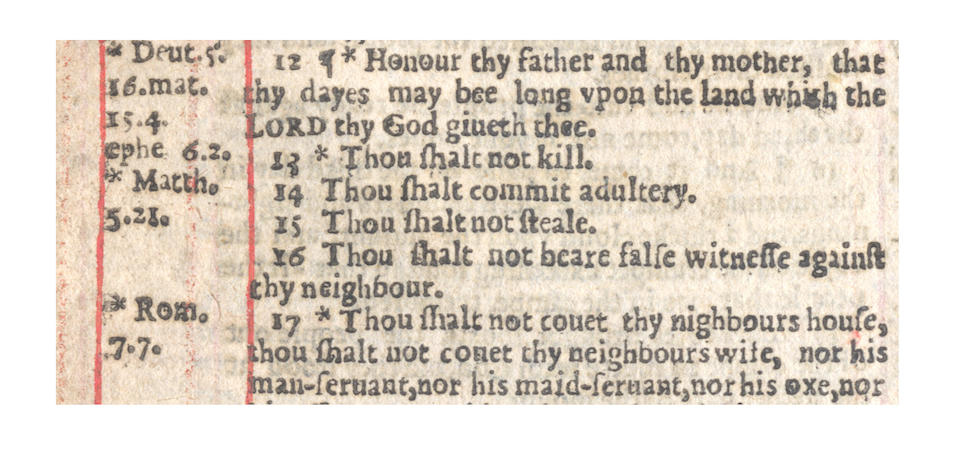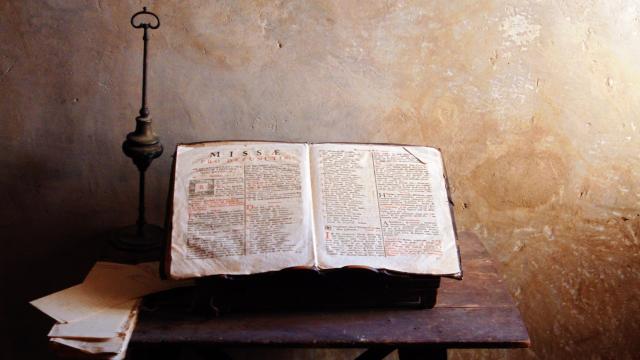Back in the 17th century a typo in a reprinting of the King James bible caused the vast majority of copies to be hunted down and destroyed. It’s often referred to as the Wicked Bible thanks to an unfortunate, but hilarious, mistake in the Ten Commandments. Here’s why.
Origin of the Wicked Bible
The Wicked Bible, also known as the Sinner’s Bible, originated in 1631. It was the product of the Royal Printers in London, Robert Barker and Martin Lucas, who accidentally let a rather important typo slip by.
Unfortunately, it was in a rather popular part of the text — Exodus 20:14, otherwise known as the Ten Commandments.
Everything seems fine until you get up to commandment number six — thou shalt not commit adultery.
It seems that somehow the rather important “not” part of that sentence was missing. Instead, the commandment read — Thou shalt commit adultery.
I mean, if the Lord says so.

Only roughly a thousand of these copies were made and it took a year for the mistake to come to light. While most of the Wicked Bibles were rounded up and destroyed, 15 still remain.
That’s not the only typo
While the Commandment blunder is the most famous typo in the Wicked Bible, it’s not the only one.
In fact, another big one can also be found in Deuteronomy 5:24, where it reads “And ye said, Behold, the Lord our God hath shewed us his glory and his great-asse.”
Clearly, that was supposed to say “greatness”.
This seems suspicious
Omitting the word “not” seems like a pretty reasonable mistake. And bible errata – a term for translation and print errors in the bible – is common in and of itself.
But the fact that two rather spicy mistakes were made in the same edition has made some wonder whether this was an act of sabotage by a rival printer.
After all, both errors take place in the only two books of the Bible where the Ten Commandments are mentioned.
“‘Great-asse’ is not a typical typographical error,” Diana Severance, the director of the Dunham Bible Museum in Houston, said to The Atlantic.
“It’s not just an accidental mistake.”
If it was on purpose, it certainly did the trick.
According to Bonham’s, Robert Barker and Martin Lucas were summoned by King Charles I, were fine £300 and lost their printing licenses.
Apparently one suspect is rival printer, Bonham Norton. According to Bonham’s his motive may have been to “politically embarrass Barker.”
“Certainly the controversy added to Barker’s decline in fortunes and reputation, and he was in and out of the King’s Bench Prison before dying there in 1645.”
Where are the Wicked Bibles now?
Today, most of them live in rare book collections around the world, such as Oxford, Cambridge, Yale and the New York Public Library. There’s even one at the University of Adelaide.
Over the past few years sales of the Wicked Bible have been popular. Back in 2015 a copy was sold by Bonham’s auction house for £31,250.
In 2016 a copy sold at Sotheby’s for $US47,500, only to be sold there again in 2018 for $US56,250.
And just last year a copy was offered up in an online sale by AbeBooks for $US99,500. It is yet to be sold.
